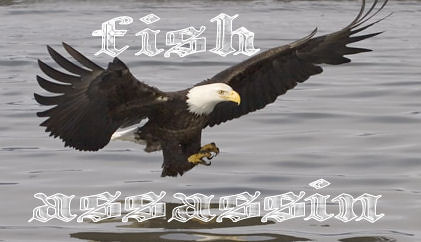Here is one interpretation from the commercial fishing sector ...
By Phil Eidsvik
November 4, 2009
Yesterday, Madame Justice Garson of the Supreme Court of BC ruled in favour of a limited Nuu-chah-nulth aboriginal right to sell all species of fish within part of their claimed traditional territory. See Ahousat Indian Band and Nation v. Canada (Attorney General) 2009 BCSC 1494 at:
http://www.courts.gov.bc.ca/jdb-txt/SC/09/14/2009BCSC1494.htm
Justice Garson#146;s ruling is rife with mistakes in law and fact (some parts are plainly absurd and indicate serious problems with her reasoning), but that does not change the effect of the ruling unless it is overturned by the next court up the ladder #150; the BC Court of Appeal. From the BCCA, it will likely go to the Supreme Court of Canada.
Garson#146;s ruling goes directly against the 1996 Supreme Court of Canada ruling in N.T.C. Smokehouse which ruled against the Nuu-chah-nulth claim:
The findings of fact made by the trial judge do not support the appellant's claim that, prior to contact, the exchange of fish for money or other goods was an integral part of the distinctive cultures of the Sheshaht or Opetchesaht. Sales of fish that were "few and far between" cannot be said to have the defining status and significance necessary for this Court to hold that the Sheshaht or Opetchesaht have an aboriginal right to exchange fish for money or other goods. Further, exchanges of fish at potlatches and at ceremonial occasions, because incidental to those events, do not have the independent significance necessary to constitute an aboriginal right#133; The exchange of fish, when taking place apart from the occasion to which such exchange was incidental, cannot, even if that occasion was an integral part of the aboriginal society in question, constitute an aboriginal right.
Justice Garson simply ignored Canada#146;s highest court on this point.
Earlier this year, Justice Satanove, also from the B.C. Supreme Court, looked at similar evidence in the case of aboriginal claimants in north-coast BC and rejected their claim to an aboriginal commercial fishing right except possibly a limited right to sell oolichans. See Lax Kw#146;alaams Indian Band v. Canada (Attorney General) 2008 BCSC 447 at:
http://www.courts.gov.bc.ca/Jdb-txt/SC/08/04/2008BCSC0447.htm
Justice Satanove held:
In particular, I am of the view that the plaintiffs have failed on the second step to prove on a balance of probabilities that their predecessors conducted a trade in Fish Resources and Products, before contact with Europeans, that in any way was #147;a central and significant part of their society#146;s distinctive culture#148;, or in any way #147;made [their] society truly what it was#148; (R. v. Van der Peet). I agree with the defendant#146;s submission that trading in all species of Fish Resources and Fish Products, besides eulachon grease, was low volume, opportunistic, irregular, for FSC purposes, and incidental to fundamental pre-contact Coast Tsimshian kinship relations, potlatch and ranked society. (para. 496)
Justice Satanove opened her ruling in Lax Kw#146;allams with the following statement:
At the end of the day, the parties have chosen to bring their claim to a court of law, not to a political forum, and they are entitled to receive an impartial adjudication that resolves their dispute by the application of the laws of Canada to the facts as I find them from the evidence before me. (para. 8) (emphasis added)
Justice Satanove clearly understands the role of the courts in deciding this type of dispute, but I cannot say that Justice Garson is of the same mind. Following below is my initial analysis of the Ahousaht decision. I have left the numerous errors in law made by Justice Garson for another day. My intent here is simply to summarize the decision and point out some of the absurd conclusions based on the evidence before the court.
I. THE RULING
The main points in Justice Garson#146;s decision are:
the most appropriate characterization of the modern right is simply the right to fish and to sell fish#133; Beyond stating that the right does not extend to a modern industrial fishery or to unrestricted rights of commercial sale, I decline to do so#133; Broadly speaking, the right is not an unlimited right to fish on an industrial scale, but it does encompass a right to sell fish in the commercial marketplace. (paras. 487-489)
.where an aboriginal right has no internal limitation, as here, the notion of exclusive priority must be rejected.#148; (para. 874)
On a north/south basis, the waters extend from about 20 kilometers south of Bamfield to and 40 kilometers north of Zeballos. East/west, the waters are from the beach to nine miles seaward (paras. 414-489 - there is a hard to read map attached at the end of the ruling)
The Nuu-chah-nulth also claimed ownership of #147;the rivers, foreshore areas (not the upland), and bodies of water below the low water mark and extending 100 nautical miles seaward. With respect to rivers, each Nuu-chah-nulth Nation claims a specific #147;test case#148; river or rivers within its territory.#148; (para. 495)
Theses title claims were dismissed: #147;Even assuming that a claim to submerged lands is legally tenable, of which I have some doubt, it is not necessary that I decide the plaintiffs#146; aboriginal title claim, and I decline to do so.#148; (para. 496)
II. JUSTICE GARSON'S VIEW OF COMMERCIAL FISHING
If it was not so serious, it would be hard not to be amused by some of Justice Garson#146;s conclusions stemming from the evidence. Here are three examples:
1. Infringement by Buyback
Al Wood (the former DFO bureaucrat?) testified as the fisheries expert on behalf of the Nuu-chah-nulth. He noted that they had 89 commercial salmon licences in 1995, but 52 were sold into the buyback program and 14 more were sold to other Canadians for a total Nuu-chah-nulth decrease of 74%. If I remember correctly, the government paid from $75,000 to $400,000 for the licences in the buyback.
According to Justice Garson, the payment of $5 million (at $75K per licence) to Nuu-chah-nulth fishermen who voluntarily sold their licences is #147;evidence of infringement#148; of the Nuu-chah-nulth right to fish commercially.
2. Infringement on Geoduck
Geoduck typically live well below the tideline. In our research over the years we have found no record of traditional aboriginal harvesting of geoduck let alone sale or barter. Even today, geoduck are harvested by a fishermen using scuba gear and are air-freighted live to markets in China because there are few markets in North America.
Despite these facts, not only did Justice Garson ruled that the commercial sale of geoduck was an integral part of Nuu-chah-nulth life for thousands of years prior to European contact, but the Nuu-chah-nulth right to fish commercially is #147;infringed in respect to the geoduck fishery.#148; (para. 587)
3. Infringement by Leasing
In addition to the millions paid by DFO to buyback commercial licenses owned by Nuu-chah-nulth fishermen, DFO gave the Nuu-chah-nulth an additional $20 million to spend on their food fishery and it also bought and transferred millions of dollars worth of salmon, crab, halibut and other licences to the Nuu-chah-nulth. Many of these licences are leased out and a number of Nuu-chah-nulth fishermen also lease out their licences including halibut quota. Here is part of the discussion in the ruling on this point:
It was pointed out#133; in cross-examination that the Nuu-chah-nulth do have 25 communal commercial licences, some of which are leased to non-Nuu-chah-nulth fishers. He responded that some of them are not being fished because of the current poor state of the salmon fishery and some are not fished because there are no fishers with suitable vessels who can afford to fish. (para. 660)
In response, Justice Garson ruled:
there are now only a handful of active full-time Nuu-chah-nulth commercial fishers#133; the individual quota system #147;squeezed#148; the Nuu-chah-nulth out of the halibut fishery #150;Nuu-chah-nulth participation in the commercial fishery has been reduced to three or four active fishermen. (para. 680)
I agree, that most of their licences are in the lower value fisheries. Moreover, the plaintiffs do not utilize some of their licences because they do not have sufficient capital to fish those licences. (para. 681)
In conclusion, I find that these programs, while well-intentioned, have not significantly supported Nuu-chah-nulth participation in the commercial fishery... (.para. 73)
In effect, Justice Garson concluded that it is DFO#146;s fault that Nuu-chah-nulth fishermen voluntarily lease out their licences instead of fish the licences and because not enough Nuu-chah-nulth fishermen are #147;active#148; fishermen DFO has infringed the Nuu-chah-nulth commercial fishing right.
The question of whether these and other #147;infringements#148; of the Nuu-chah-nulth commercial fishing right are legally justifiable has been left for a future court.
III. WHAT HAPPENS NEXT?
DFO cannot ignore the Supreme Court of Canada decision in N.T.C. Smokehouse in which the court rejected a Nuu-chah-nulth right to sell or trade and barter salmon. Neither can DFO ignore the decision by Justice Satanove of the BC Supreme Court in which she rejected a Tsimpshean commercial right on basically the same evidence.
That said, Justice Garson ruled that DFO should negotiate how much fishing opportunity to give to the Nuu-chah-nulth and the Supreme Court of Canada has restated again and again that the involvement of other fishermen in the commercial fishery is a relevant factor in deciding how much to give an aboriginal group with a commercial right.
There are three things that DFO does NOT have to do:
a. immediately start reallocating fish or licences to the Nuu-chah-nulth;
b. establish race-based commercial fisheries or let Nuu-chah-nulth fisheries operate their commercial fisheries under different rules or regulations;
c. turn fishery management authority over to the Nuu-chah-nulth #150; DFO is clearly the fishery manager, not the Nuu-chah-nulth.
Given the number of licenses already held by the Nuu-chah-nulth and the variety of fishing families that already depend upon the fish resource on the West Coast of Vancouver Island, the Nuu-chah-nulth may already have sufficient licences. If not, DFO can do as it did in the Maritimes following the Supreme Court of Canada decision in Marshall, any increase in the Nuu-chah-nulth commercial fishery can be accommodated simply by buying and transferring additional licences to the Nuu-chah-nulth. These licenses will then be fished under the same rules and regulations as all other Canadians.
IV. CONCLUSION
If Justice Garson#146;s loose interpretation of facts and law is allowed to stand, there will be few aboriginal groups in Canada who will not be able to prove a commercial fishing right. Though any licence transfers can be done with minimal impacts, Justice Garson#146;s decision will have tremendous consequences for other Canadians who engage in recreational and commercial fishing as public access to the fishery becomes non-existent.
We should expect an immediate appeal of this decision by the federal government. The Gordon Campbell government dropped out of this case because he did not want to offend the Nuu-chah-nulth, so it has to be the government of Canada that appeals. Clearly, Campbell has picked a side in this dispute and it is not on the side of the average fishing family in B.C.
BC Fisheries Survival Coalition.
God never did make a more calm, quiet, innocent recreation than angling - Izaak Walton



